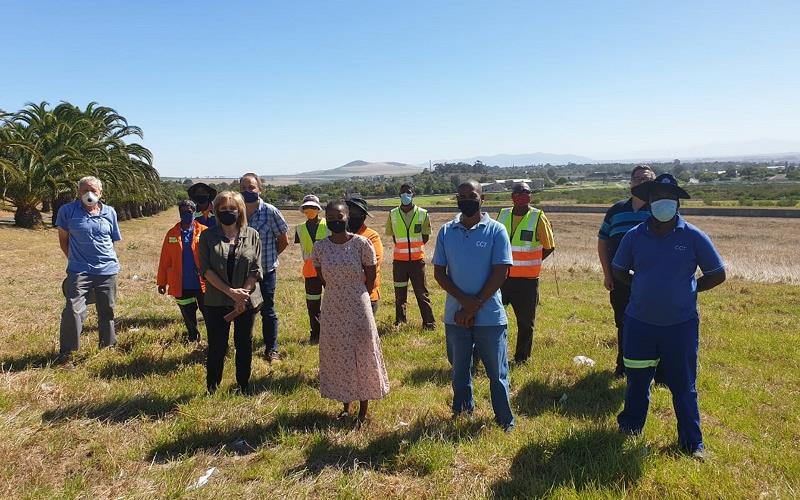The Bowlers Conservation Area in Durbanville could soon have a new crop of endangered Cape Fynbos growing in the facility, as local residents Andre Venter and Jan Wicht have added their names to the growing list of community champions that have volunteered to help Recreation and Parks teams clear an invasive species of alien vegetation called Acacia saligna, also known as Port Jackson willow.
According to the City of Cape Town, almost 1.5 hectares of land was cleared in the Bowlers Conservation Area, which is often used by residents to walk their dogs and exercise, as well as nature enthusiasts who visit for bird watching and even conduct research on the abundant biodiversity on site.
For months starting in November last year, the need to remove Port Jackson at Bowlers Public Open Space became apparent when the growth spurt of the invasive species started to affect the remnants of the critically endangered Cape Flats Sand Fynbos and Swartland Shale Renosterveld vegetation.
Acacia saligna is indigenous to Australia and was introduced locally to stabilise dune movement; however, this species has been extremely successful at invading most vegetation across the city, especially in fynbos regions; and is classified as a category 1b invasive species in the National Environmental Biodiversity Act Regulation
As a result of the sudden growth spurt of the invasive species in the area, the Recreation and Parks Department welcomed the enthusiasm of local residents who volunteered to get involved and requested to physically assist in hacking away the unwanted stalks.
Fortunately, the Recreation and Parks Department managed to find the perfect volunteers for the job, as Andre and Jan have a vast knowledge of the vegetation and plants found on site, having been involved with plant identification for many years. The pair also brought along tools and approved herbicide mixtures, becoming valuable members of City staff working in the area.
1.5 Hectares of alien vegetation cleared for endangered Cape Fynbos to flourish.
The progress was made possible through a partnership between the City’s Recreation and Parks Department and local residents.
Read more: https://t.co/jkEg60yk0s#CTNews pic.twitter.com/RoWqyi2iXG
— City of Cape Town (@CityofCT) March 29, 2021
In order to properly clear the invasive species, the plant must be cut and herbicide applied at the stem in order for it not to grow back. According to Sihle Jonas, Ecological Co-ordinator, the Recreation and Parks department will continue to attend to the site every six months, at least for the next three years, to ensure that the Acacia saligna does not grow back.
“Jan and Andre are long-term advocates for the conservation of environmental awareness, protection of Cape fynbos and local wildlife. The pair have been model activists for the environment in Durbanville where Bowlers POS is in the process of being officially declared a conservation area, from its current status as a Biodiversity Agreement site,” said Parks Superintendent, Wilhelm Van Wyk in a statement.
Picture: City of Cape Town

